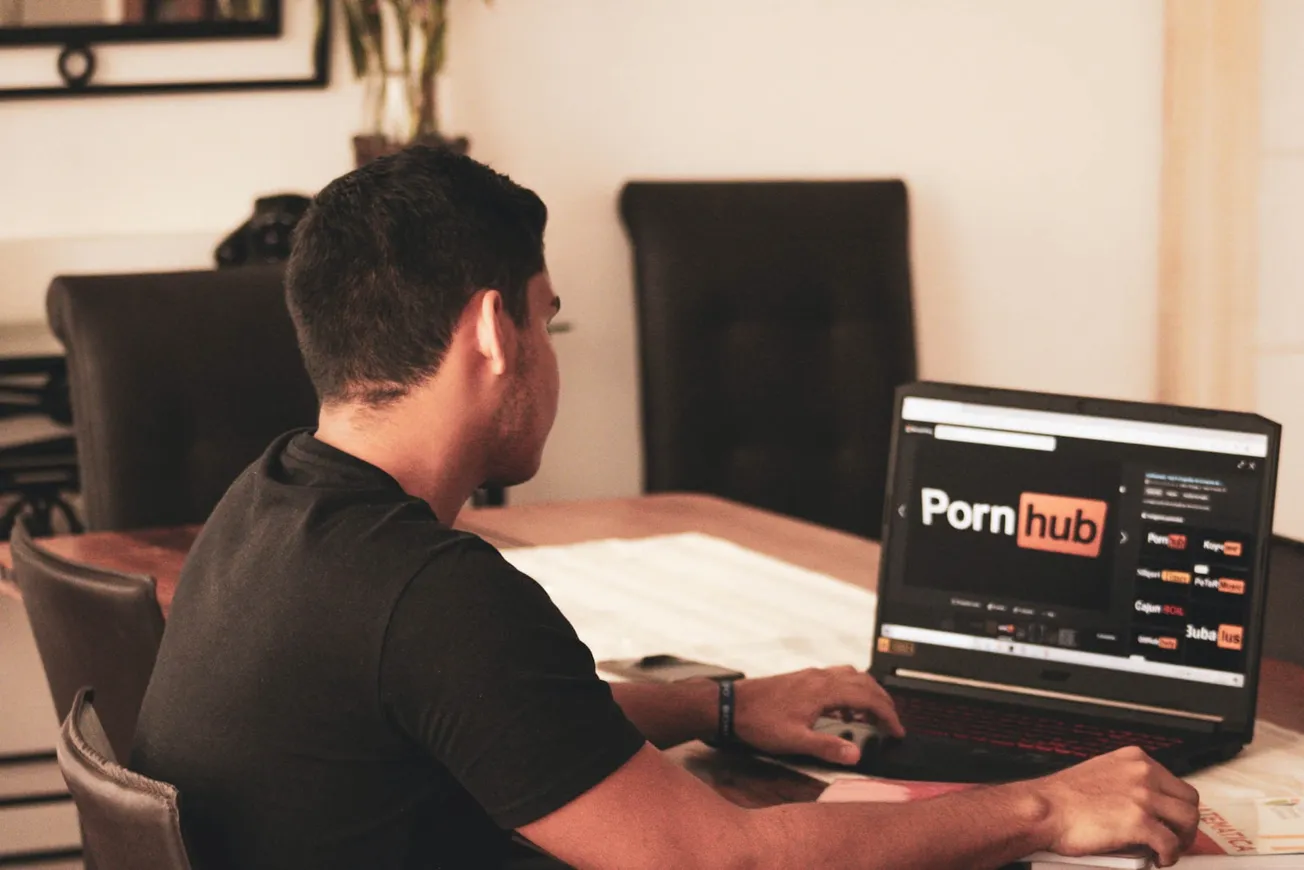Table of Contents
Ben Terangi
Ben Terangi is a freelance journalist writing from Milwaukee.
Sex trafficking platform Pornhub has been dealt a major blow over the last year, with age verification laws sailing through multiple state legislatures, in some cases unanimously. As a result, the sleazy site has seen its traffic cut by up to 80 percent in some jurisdictions.
A surprising and in-depth look at this issue by left-leaning Politico summarises the good news in its headline: “A Simple Law Is Doing the Impossible. It’s Making the Online Porn Industry Retreat.”
“Unlike past efforts to curb online porn that had simply declared the sites a danger to public health, these laws are not symbolic,” the article declares. “And they are having real effects on how the massive online porn industry does business.”
By the beginning of next year, Politico reports that “around 54 million Americans will live in states where they are required to upload their identification to access pornography websites, if those pornography websites choose to operate there at all”.
In this rising tide of sanity, the biggest loser by far is the “YouTube of pornography”, Pornhub, which enjoys more global users than Amazon or Netflix: 42 billion hits a year, according to the most recent data.
So where have the bills got up?
Paying close attention to this question is the trade union of America’s “adult industry”, the Free Speech Coalition (FSC), with its live Age Verification Bill Tracker.
FSC’s tracker features a map suggesting that 23 states in the union are waging war on smut, though the reality is a little more nuanced.
In 2022, Louisiana became the first state to pass an age-verification law, which holds websites containing a “substantial portion” (33.33%) of adult content liable unless the “ perform reasonable age verification methods”. Now users must show government ID to prove they are 18 or older before entering.
The Louisiana bill was wildly popular, passing the House 96-1 and the Senate 34-0.
Since that time, almost identical bills have passed in six other states — Texas, Virginia, Arkansas, Mississippi, Utah and Montana, the latter whose law will come into effect January 1, 2024.
Remarkably, in Arkansas and Utah, not a single state Representative or Senator opposed the legislation.
Ethical Capital Partners, the ludicrously-named private equity firm that owns Pornhub, has since reported an 80 per cent drop in traffic in Louisiana.
In Utah, Mississippi, and Virginia, Pornhub has stopped operating altogether. There, users who visit the site are greeted with a fully-dressed porn star explaining the “injustice” of it all. Talk about a culture war victory.
Other age verification bills have been introduced in the remaining states on FSC’s map to varying degrees of success, with some failing outright and others still in progress.
Encouragingly, Politico quoted a conservative think tank director who noted that Americans strongly support the kind of legislation in view. “You poll this, it’s like an 85-15 issue,” Jon Schweppe of the American Principles Project told the outlet. Schweppe said he was feeling “bullish we can get similar legislation passed in like 10 more states by the end of next year’s session.”
Thus far, all such legislative efforts have looked to the model bill drafted and approved in Louisiana. Short and sweet, Louisiana’s R.S. 9:2800.28 takes no prisoners, crediting pornography with a host of social and medical ills:
Due to advances in technology, the universal availability of the internet, and limited age verification requirements, minors are exposed to pornography earlier in age. Pornography contributes to the hyper- sexualization of teens and prepubescent children and may lead to low self-esteem, body image disorders, an increase in problematic sexual activity at younger ages, and increased desire among adolescents to engage in risky sexual behavior.
Pornography may also impact brain development and functioning, contribute to emotional and medical illnesses, shape deviant sexual arousal, and lead to difficulty in forming or maintaining positive, intimate relationships, as well as promoting problematic or harmful sexual behaviors and addiction.
As told by Politico, the Louisiana bill’s success was largely due to the work of freshman Representative Laurie Schlegel, whose pre-politics profession was sex addiction therapist.
Notably, Ms Schlegel didn’t seek office on an anti-porn platform. She was elected in May 2021, and it was only in December of that year she was moved to protect minors and strike a blow to Pornhub’s business model.
It was while reading about a Billie Eilish interview on the Howard Stern Show that Ms Schlegel had her “aha” moment.
In that interview, pop star icon Eilish explained, “I used to watch a lot of porn, to be honest. I started watching porn when I was like 11… I think it really destroyed my brain and I feel incredibly devastated that I was exposed to so much porn.”
Thanks to her line of work, Ms Schlegel was already aware of pornography’s harms, but the Eilish interview set her into action. “It just sort of re-emphasized to me what a problem this is, especially for our children,” she told Politico.
For all the good news there is to report, it is clear that Pornhub won’t go down without a fight. FSC has already sued Utah and Louisiana, and Politico hints that other states may be next.
“I can’t stress enough that this is First Amendment protected speech,” FSC director of public affairs Mike Stabile told Politico. He is fuming at legislators who have managed to “police the open internet and start to wall it off”.
In upside-down world, the chains of pornography are sold as “freedom”, and soul-destroying obscenity is the only “speech” worth protecting.
Here in the real world, Americans are starting to wake up — and future generations will thank them for it.









